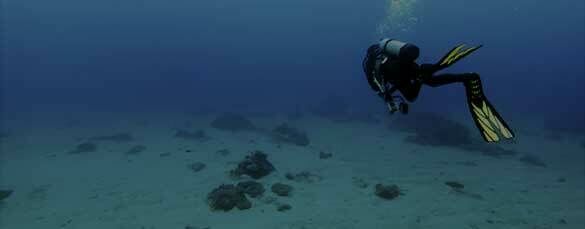Previous myocardial infarction
Individuals who have suffered a myocardial infarction are permitted to resume diving by the UKDMC if they satisfy the following criteria:
1. They have had a one year lay off from diving (as they then would be off dual antiplatelet therapy) and have no cardiac symptoms or evidence of silent ischemia when off all cardiac medication. Lipid lowering drugs and antiplatelet agents (single agent only) are permitted. Use of beta-blockers will be considered on an individual basis provided they are used for secondary prevention and there is no evidence of impairment of cardiac or respiratory function and they have an acceptable exercise capacity.
2. They can satisfactorily perform a treadmill exercise test, achieving a good workload (for age, sex and build) with a normal heart rate and blood pressure response, without evidence of ischaemia or arrhythmia on a 12-lead ECG. They will usually be expected to achieve at least 9 minutes (3 stages) of the Bruce protocol (or equivalent).
3. There is little residual myocardial dysfunction, as evidenced by an echocardiogram showing a left ventricular ejection fraction of at least 50%.
4. They will not be permitted to dive with novice divers in future, but must dive with experienced companions who should be aware of the condition and who can render assistance if required.
5. It is essential that the diver and buddy are able to ascend directly to the surface if the diver has symptoms or becomes unwell during the dive. Therefore there are restrictions on the depths, severity and conditions of dives including:
a) No wreck penetration, cave diving or diving under ice to permit immediate direct ascent to the surface if the diver becomes unwell underwater.
b) Divers should have no mandatory decompression stops. They may encounter a safety stop advised by many computers and tables. If the diver gets symptoms such as breathlessness, chest discomfort or palpitations during a dive, the dive should be abandoned and the diver and buddy perform a direct ascent to the surface and omit the safety stop. Omitting the safety stop has a very low risk of causing decompression illness.
c) Ideally should always dive within easy reach of the shore or cover boat. This is because of the increased risk of immersion induced pulmonary oedema.
6. Fitness to dive will be reviewed annually irrespective of the diver’s age, but should symptoms recur between medical examinations, the diver must cease diving until reviewed by a Medical Referee.
Please see separate guidance on anticoagulants.
Reviewed April 2024.



